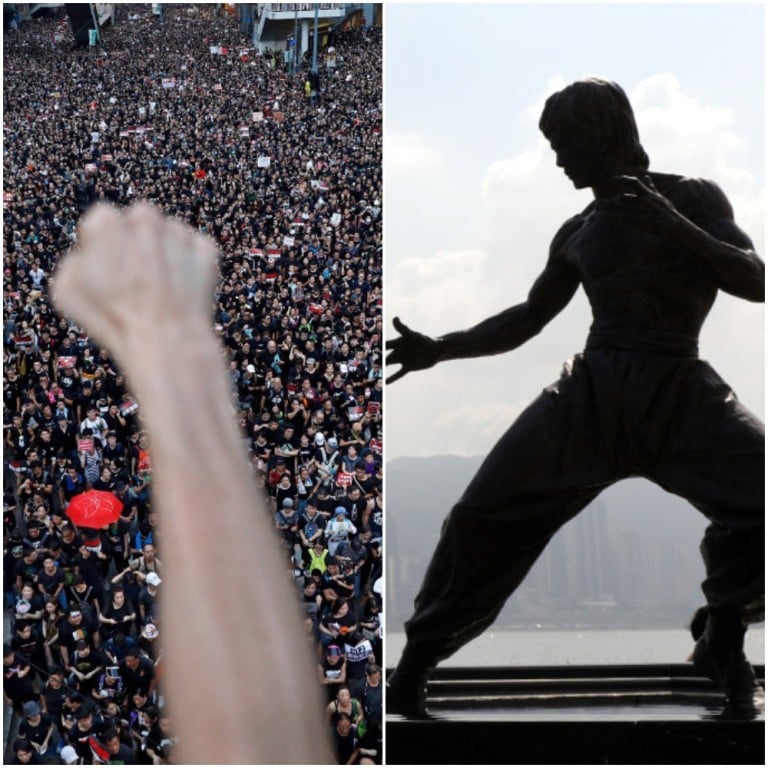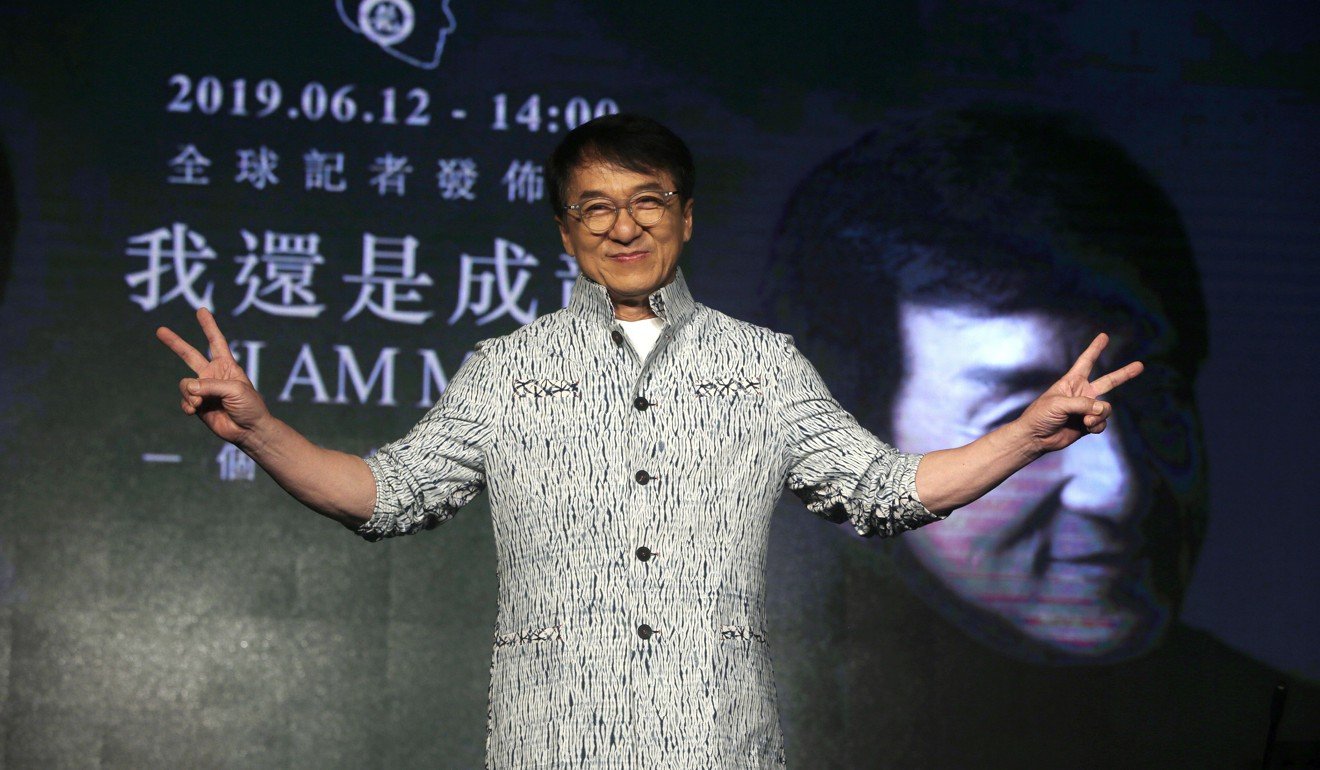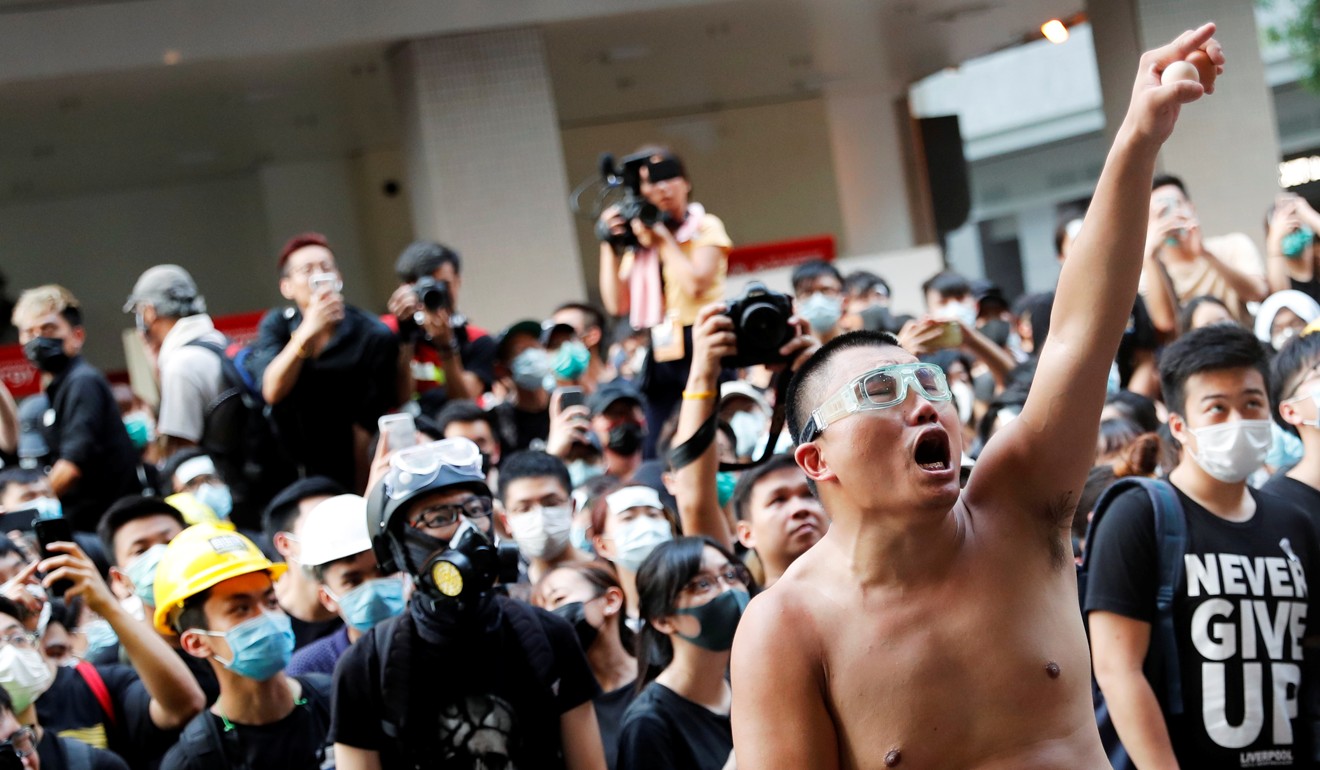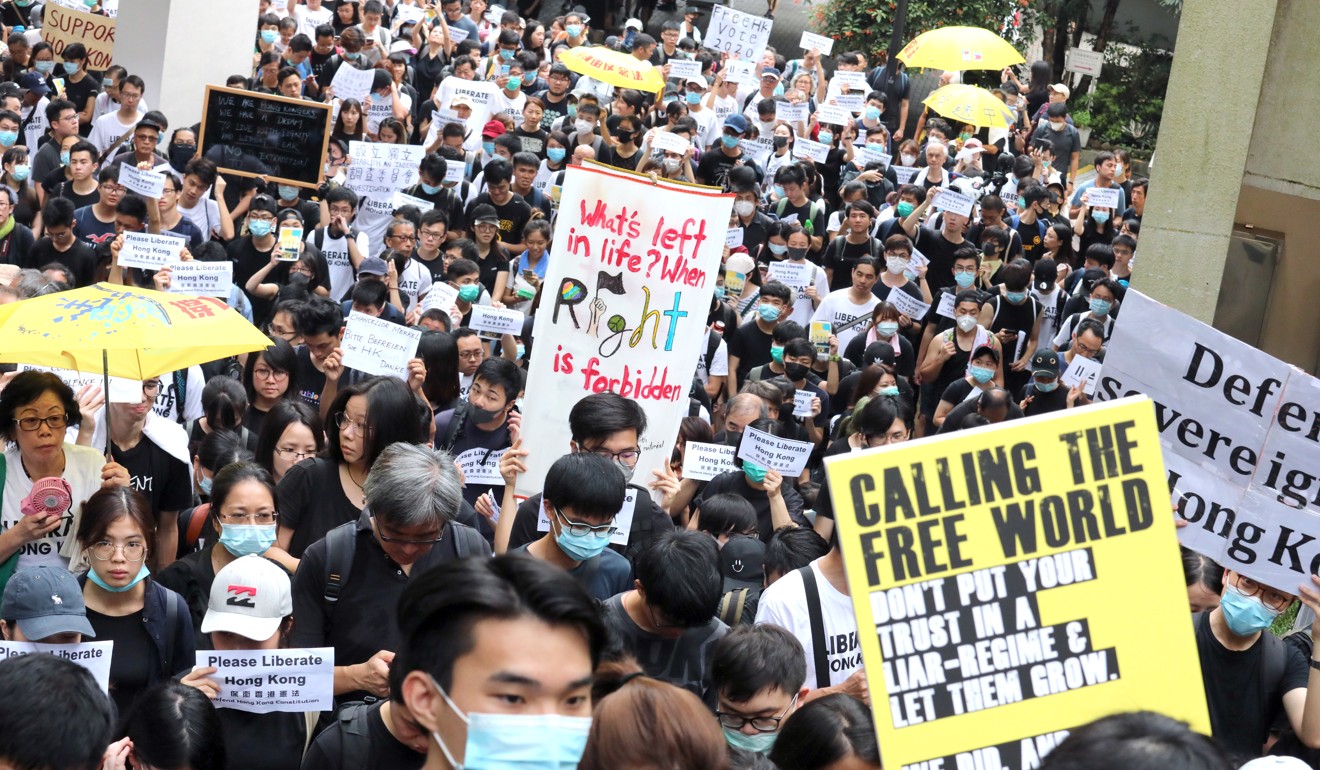
Hong Kong protests embrace Bruce Lee but reject Jackie Chan in tale of two martial arts heroes
- Bruce Lee becomes a symbol for young demonstrators and their ‘formless’ guerilla tactics in defiance of China’s unpopular extradition law
- But Jackie Chan, already vilified for his pro-Beijing stance, feigns ignorance of historic marches in his home city
Enter The Dragon star Lee’s famous “Be water, my friend” saying has become a clarion call among the young protesters demanding Chief Executive Carrie Lam Cheng Yuet-ngor withdraw the unpopular legislation which would have allowed for the transfer of fugitive suspects to mainland China and other jurisdictions with which Hong Kong has no extradition deal.
Spontaneous road blockades and the circling of buildings have replaced the prolonged mass sit-ins of the 2014 Occupy movement, creating a “formless” protest.
“We are formless, we are shapeless, we can flow, we can crash, we are like water, we are Hongkongers!” read one protester’s sign channelling Lee’s philosophy.
Protesters are also wearing T-shirts and clothing bearing Lee’s words and likeness, with the martial arts icon becoming a symbol of the movement.
Drunken Master star Chan, on the other hand, feigned ignorance of the protests when asked during a trip to Taiwan to promote his new album, I Am Jackie Chan.
The visit coincided with police firing tear gas in clashes with demonstrators as tens of thousands surrounded the Legislative Council building in Hong Kong.
“I only found out yesterday there was a big march in Hong Kong. I don’t know anything about it,” Chan said, despite images of two million marchers being widely disseminated around the world.

It was a less controversial take than his 2014 comments, when he weighed in on Beijing’s side and said he was “worried” about damage to Hong Kong’s financial markets during the occupation of key commercial districts, and called for a “return to rationality”.
“I am willing to work hard with everyone … to face the future, love our country, love our Hong Kong,” he added.
Well, Chan may love Hong Kong, but does Hong Kong love him any more?
The Hong Kong-born actor is adored around the world for his famous kung fu films like the Rush Hour series, but his pro-Beijing views and dismissals of the democracy movement are unlikely to endear him to protesters, two million of whom marched on June 16.
“I’m not sure if it’s good to have freedom or not,” he said in 2009. “I’m really confused now. If you’re too free, you’re like the way Hong Kong is now. It’s very chaotic. Taiwan is also very chaotic.”
But while Chan is opposed to chaos, Lee embraced it in his teachings.
“In the middle of chaos lies opportunity,” was one of his famous idioms. “Out of chaos, find simplicity. From discord, find harmony,” was another.
Hong Kong’s protesters believe they are taking their opportunity amid the chaos to have their voices heard by the world. They say they are trying to bring the city together as one in harmony against China’s increasing curbs on their freedoms.

If Lee was alive today, who knows whether he would weigh in on the side of the protesters? Stardom and success often comes with a price to pay for Chinese actors and celebrities.
Hong Kong film stars Andy Lau, Leon Lai, Donnie Yen, John Woo, Sun Xing and Tony Leung Ka-fai all starred with Chan in the 2009 Chinese propaganda blockbuster Founding of a Republic. The epic was made by the state-owned China Film Group, and marked the 60th anniversary of the Communist revolution and featured a cast made up of almost 200 of China’s best-known stars.
Perhaps Lee would go the way of China’s other martial arts megastar Jet Li, who has naturalised himself in Singapore away from all the controversy – though Li also starred in Founding of a Republic.

There is of course no way to tell. But Lee’s legend is being immortalised by a new generation of Hongkongers who have made him a symbol for their cause. The legend of Bruce Lee is only being enhanced (as if it needed to be any more).
Chan, meanwhile, continues to turn a blind eye to what is going on in his home city. Maybe his PR people have told him it’s not a good look to make a big fuss again, something he probably doesn’t need telling.
But with the eyes of the world on Hong Kong, Chan will not be able to escape the questions forever. Sooner or later he will have to answer, and his reputation could suffer, depending on what he says.











